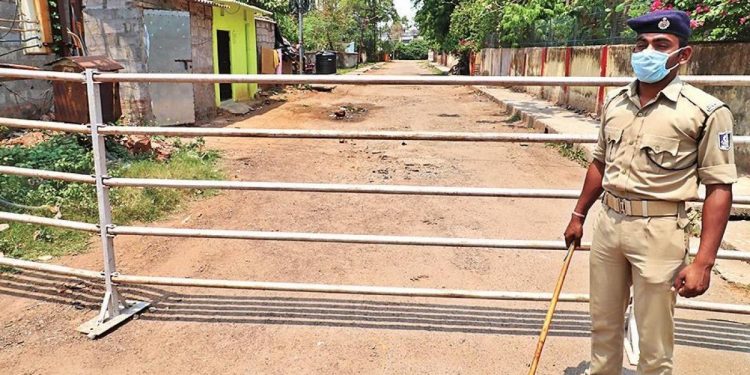New Delhi: In the light of an exponential surge in COVID-19 cases, the central government Tuesday issued a “Test-Track-Treat” (TTT) protocol in all parts of the country to ensure observance of pandemic-appropriate behaviour by everyone and to scale up the vaccination drive by covering all the target groups.
The Ministry of Home Affairs (MHA) issued the SOP order with guidelines for effective control of the deadly pandemic, which will be effective from April 1 and remain in force till April 30.
The main focus of the guidelines is to consolidate the substantial gains achieved in containing the spread of COVID-19, which was visible in the sustained decline in the number of active cases, continuously for about five months.
In order to ensure that the resumption of activities is successful and to fully overcome the pandemic, it is stressed on the need to “strictly” follow the prescribed containment strategy, and observe the guidelines and SOPs issued by the Centre as well as states and Union Territory governments.
Under the TTT protocol, the Ministry has emphasised upon seven points in which it is directed to the states and the UTs to rapidly increase the proportion of RT-PCR tests to reach the prescribed level of 70 per cent or more.
It is also advised that the new positive cases, detected as a result of intensive testing, need to be isolated or quarantined at the earliest and provided timely treatment. Further as per the protocol, the contacts of new cases have to be traced at the earliest, and similarly isolated.
Based on positive cases and tracking of their contacts, containment zones shall be carefully demarcated by the district authorities, at the micro level, taking into consideration the guidelines prescribed by the Ministry of Health and Family Welfare (MoHFW) in this regard, said the Ministry.
The list of containment zones will be notified on the web sites by the respective District Collectors and by the states or UTs. This list will also be shared with MoHFW on a regular basis.
Within the demarcated Containment Zones, containment measures, as prescribed by MoHFW, shall be scrupulously followed, which include strict perimeter control, intensive house-to-house surveillance, contact tracing and surveillance for influenza like illness (ILI) and severe acute respiratory infections (SARI).
Local district, police and municipal authorities shall be responsible to ensure that the prescribed Containment measures are strictly followed, and state or UT governments shall ensure the accountability of the officers concerned in this regard.
For strict enforcement of wearing face masks, hand hygiene and social distancing, states and UTs may consider administrative actions, including imposition of appropriate fines as per the guideline.
National Directives for COVID-19 management shall continue to be followed throughout the country to enforce COVID-19 appropriate behavior.
States and UTs have been authorised to impose local restrictions with a view to contain the spread of COVID-19 based on their assessment of the situation.
There shall be no restriction on inter-state and intra-state movement of persons and goods including those for cross land-border trade under Treaties with neighbouring countries. No separate permission or e-permit will be required for such movements.
All activities have been permitted outside containment zones and SOPs have been prescribed for various activities. These include movement by passenger trains; air travel; metro trains; schools; higher educational institutions; hotels and restaurants; shopping malls, multiplexes and entertainment parks; yoga centres and gymnasiums; exhibitions, assemblies and congregations.
IANS






































